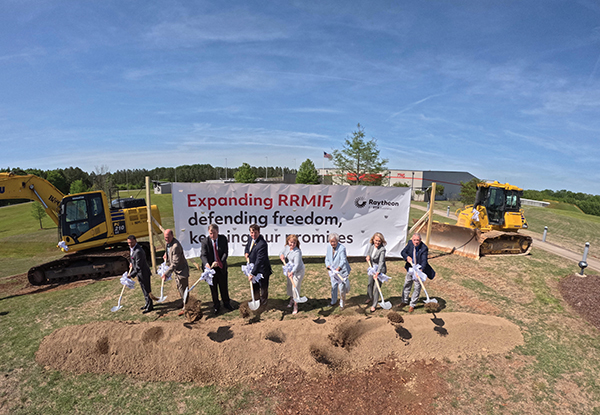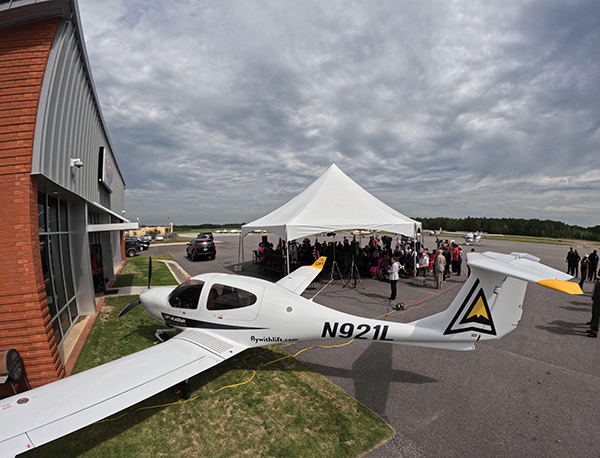
Alabama’s economy has hit a sweet spot, with record employment levels and evidence of growth just about everywhere you look.
Consider this: In May alone, Alabama’s economic development team brought home two major trophies, which together involve well over $1 billion in new investment from companies with big-time brand power.
In Montgomery, Meta Platforms announced plans to build an $800 million data center to power popular apps such as Facebook and Instagram. In Birmingham, Coca-Cola Bottling United will invest $330 million to build a new headquarters and production hub.
And for the long haul, the ground has been seeded to produce sustained growth.
Governor Kay Ivey recently signed into law the “Working for Alabama” package of six bills designed to do just that. It aims to get more people into the workforce, streamline economic development efforts and invest in Alabama communities, especially those in rural areas.
Later this year, Alabama will also have a brand-new economic development strategic plan that is meant to guide efforts into the next decade. Consulting firm McKinsey & Company has joined the team working on the plan, which is due for completion by October 1st. These developments complement “The Game Plan,” an initiative adopted last year to update Alabama’s economic development tool kit.
An important element of the plan is the Site Evaluation Economic Development Strategy Act, or SEEDS, which has already steered $30 million into critically needed site development activities across the state. The new industrial sites created through SEEDS have positioned Alabama to compete for over a dozen corporate growth projects involving $13.5 billion in investment and 5,000 jobs, said Ellen McNair, secretary of the Alabama Department of Commerce.
“Those numbers are way beyond anything I ever dreamed, and I know everyone in the economic development community is pretty excited about the potential in those numbers,” McNair said, noting that a second round of SEEDS grants is in the works.
Meanwhile, there are other encouraging signs that point to accelerating growth in key industries.
Bioscience Corridor

In Birmingham, two bio-focused research institutions have embarked on significant growth projects that will allow them to create new laboratory jobs and make even more high-impact scientific discoveries.
Together, the University of Alabama in Birmingham (UAB) and Southern Research are investing more than $175 million to build ultra-modern new facilities just a few city blocks apart.
UAB announced that the Altec Styslinger Genomic Medicine and Data Sciences Building will advance its leadership in precision medicine, genomic science and biomedical research. UAB expects the facility will allow it to recruit 75 investigators and attract $100 million in additional research funding annually.
Construction of the facility — boasting an eye-catching design featuring the iconic image of a double helix and built with bird-protecting glass — is expected to be complete in December 2024.
Nearby, Southern Research is building a flagship biotech center that will feature 106,000 square feet of commercial wet labs, Biosafety Level 3 space and data science facilities. The facility is projected to create 150 jobs.
Together, these projects will propel Birmingham and Alabama to the forefront of innovation built around bioscience discoveries.
The State of Alabama provided financial backing for both projects. The state is also working to ensure the industry’s workforce needs are met through a bioscience technician training program coordinated by BIO Alabama, an industry group, and AIDT, Alabama’s workforce development agency.
“We are leaving no stone unturned in developing our workforce to meet and exceed industry demands in Alabama,” Governor Ivey said.
Aerospace Growth

Photo provided by Governor’s Office / Hal Yeager
The biggest names in aerospace continue to invest in Alabama, where industry stalwarts including Lockheed Martin, Boeing and Airbus all have significant presences.
Raytheon recently launched a $115 million expansion of its Redstone Raytheon Missile Integration Facility, which will increase the factory's space for delivering critical defense programs by more than 50 percent.
The expansion will also bring an estimated 185 new jobs to the Huntsville site, growing the employee footprint of Raytheon and its parent company RTX in Alabama to over 2,200 people.
The facility handles integration of the Standard Missile family, including SM-3 and SM-6. It will also accommodate additional defense programs, including the Glide Phase Interceptor (GPI) designed to defeat the emerging threat of hypersonic glide vehicles.
Meanwhile, Florida-based AE Industrial Partners (AEI), a private equity firm, acquired a sprawling industrial facility in Colbert County with plans to redevelop it as an “aerospace center of excellence.”
AEI noted that the 2.2 million-square-foot facility is well suited for aerospace manufacturing and will become the new headquarters for select portfolio companies as well as other aerospace suppliers and manufacturers.
“AE Industrial is a highly focused investment firm, with a strategy to drive value creation at the nexus of the aerospace, space and defense markets — all sectors that are currently thriving in Alabama,” said AEI Co-CEO David Rowe.
These growth plans build on industry projects underway that include Airbus’ addition of a second Final Assembly Line for A320 aircraft at its Mobile manufacturing facility and the United Launch Alliance expansion of its rocket factory in Decatur.
Gaining Horsepower
For Alabama’s automotive industry, the growth is still accelerating.
Alabama has become the nation’s number one auto-exporting state, with international vehicle shipments surging past $11.2 billion in 2023 to overtake long-time leader South Carolina.
Alabama’s auto exports have climbed 45 percent in value since 2021, when they totaled $7.7 billion. Alabama-made vehicles landed in 78 countries last year, with Germany, China and Canada the leading destinations.
“The global demand for these high-profile products extends the ‘Made in Alabama’ brand, raising awareness of the state as the source for great products,” said Christina Stimpson, director of Commerce’s Office of International Trade.
Alabama continues to invest in the industry’s future growth.
AIDT is building a $30 million workforce training center in Decatur that will focus on electric vehicles and emerging technologies to position the state’s auto industry for the next chapter of its growth.
The 40,000-square-foot facility will be located on the campus of the Alabama Robotics Technology Park, a $73 million center where AIDT helps companies train workers on advanced R&D and manufacturing technologies.
“Our main goal is to help the state’s automakers continue to grow during the transition to electric powertrains and assist them as they embrace new technologies that are evolving all the time,” AIDT Director Ed Castile said. “We just want to make sure we have a workforce with the ability to thrive in this new environment.”
Rural Growth
After attracting nearly $6 billion in new investment since 2020, Alabama’s rural counties are becoming the go-to location for companies engaged in the manufacturing of solar panels and aluminum auto parts and the mining of graphite.
In addition, two rural Alabama communities are becoming home to new flight training academies.
Republic Airways and its Leadership in Flight Training (LIFT) Academy have plans to develop an advanced flight training program in Tuskegee that will prepare the next generation of aspiring pilots.
LIFT is teaming with Tuskegee University and the City of Tuskegee to base the training center at Alabama’s storied Moton Field, where the pioneering Tuskegee Airmen received flight training. The partnership between LIFT and Tuskegee University was designed to recruit and educate future African-American pilots with first-rate classroom and flight instruction.
In Selma, Resicum International is opening an aviation training academy at Craig Field. The Virginia-based company plans to create 70 jobs at its new operational hub at the former U.S. Air Force base.
Craig Field’s long runway, large parking apron and excellent hangar facility made it a perfect match for Resicum’s project. In addition, a groundbreaking new remote tower facility and Air Traffic Control Training Academy are enhancing the complex’s flight safety and training opportunities.
Brenda Tuck, rural development manager for the Alabama Department of Commerce, said the aerospace industry is thriving in unexpected places in Alabama.
“Aerospace and aviation are key industries for Alabama’s economy, and the contributions of the state’s rural communities are vital to their success,” Tuck said. “It’s a great match, and we’re going to see more and more of it.” T&ID

